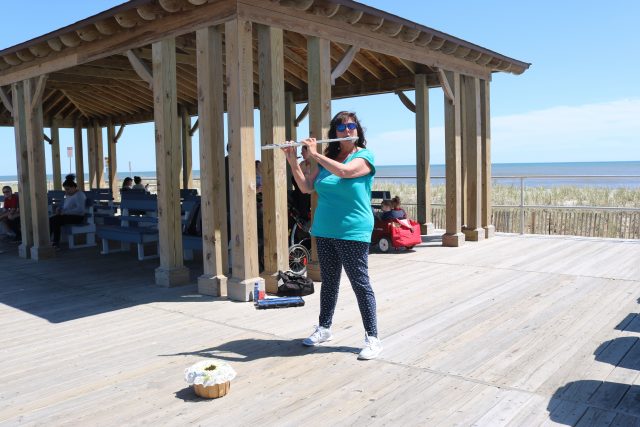By Donald Wittkowski
Boardwalk performers, listen up: You’ll have to tone it down going forward.
Hoping to put a damper on excessively loud singing or music on Ocean City’s signature attraction, City Council approved a new ordinance Thursday night that prohibits Boardwalk entertainers from using amplifiers.
City officials said the ordinance strikes a balance between the performers’ constitutional right to free expression and the rights of everyone else to enjoy the family-friendly ambiance on the oceanfront promenade.
“We want an atmosphere on the Boardwalk that’s fair and works for everybody. But that’s difficult sometimes,” Mayor Jay Gillian told the Council members.
Gillian and the Council members said they are responding to complaints from merchants and the public that the performers are too loud, effectively drowning out the Boardwalk atmosphere with amplified music and singing.
“The one concern we have been getting, one that we can address, is how loud the entertainers are,” City Solicitor Dorothy McCrosson said.
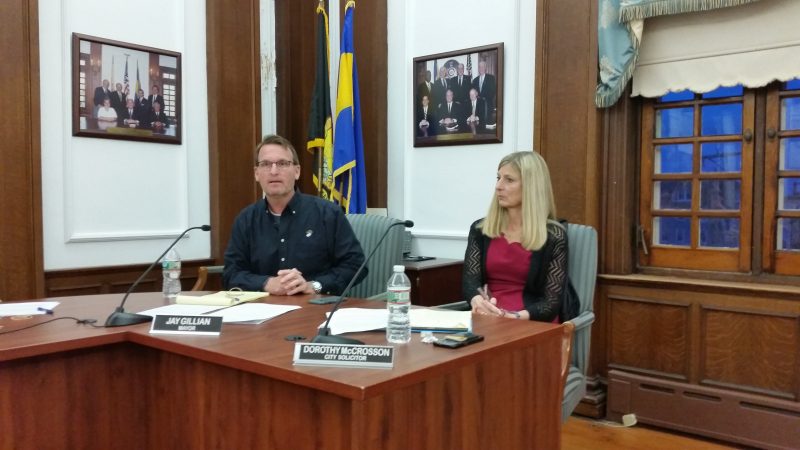
The measure is being pitched by city officials as a fair compromise for lowering the volume on the Boardwalk without completely muffling the entertainers.
“There has to be some form of balance,” Councilwoman Karen Bergman said.
One Boardwalk merchant, Jody Levchuk, an owner of the Jilly’s shops on the Boardwalk, said he does not oppose the entertainers, but believes that amplifiers should be banned to limit the amount of noise and disruptions.
In remarks to Council, Levchuk read a statement on behalf of the Boardwalk Merchants Association that characterized the ordinance as a “just compromise.”
“We are not attempting to mute the performers,” said the statement, which was written by the Boardwalk Merchants Association’s president, Wes Kazmarck.
The statement, though, said that excessive noise from amplified singing and music disrupts the shops and hurts the ability of merchants to conduct business.
In addition to banning amplifiers, the ordinance limits the projection of sound to within 30 feet of where the performers are standing on the Boardwalk.
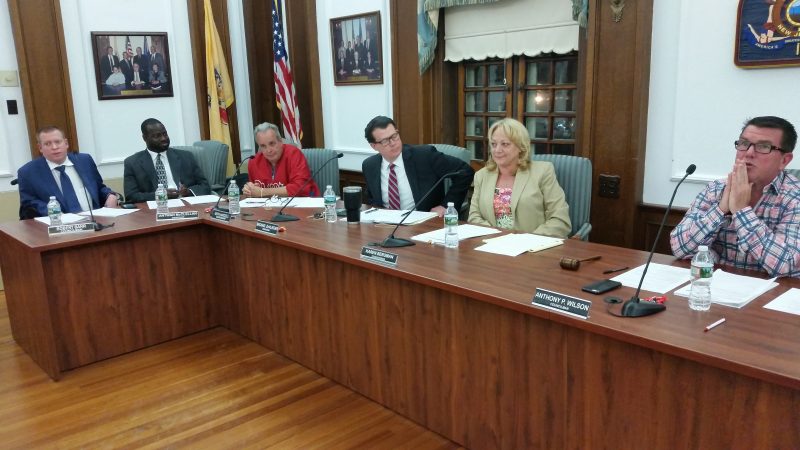
Accommodations will be made, however, for performers who have disabilities. At the request of Councilman Bob Barr, entertainers who have needs under the Americans With Disabilities Act will be able to use special adaptive equipment to play their instruments.
Barr, who has cerebral palsy and uses a wheelchair, said he did not want to hinder disabled people from performing on the Boardwalk in any way. The other Council members agreed with Barr.
Gillian pledged to Barr that city employees will take steps to accommodate the special needs of disabled performers when they come to City Hall to obtain their Boardwalk entertainer licenses.
“If you pass this ordinance, you have my word we will do it properly,” the mayor told Barr.
The Council members approved the measure 6-0 after a lengthy discussion. They repeatedly said they would be willing to consider making changes to the ordinance if it needs to be tweaked later on.
“The pendulum goes back and forth. We have to be reasonable,” Councilman Michael DeVlieger said.
During the meeting, Council listened to comments from the public both in support of and against the ordinance. Some members of the public applauded after Council voted.
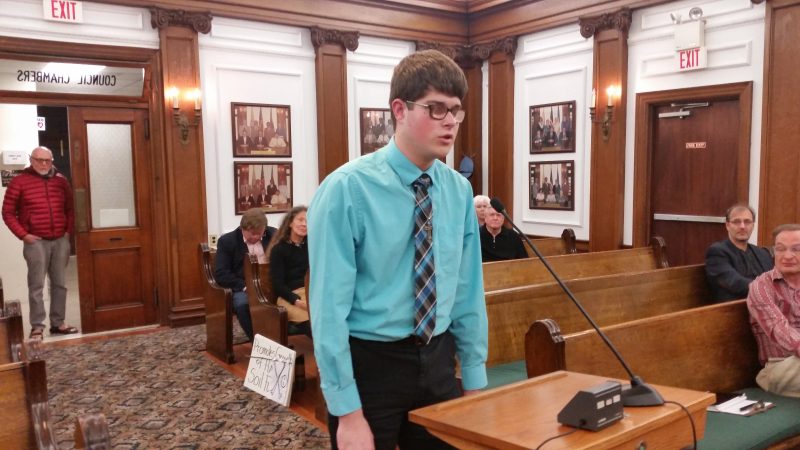
Bryan Woolbert, a 20-year-old college student who sings and plays an electric keyboard on the Boardwalk, thanked city officials for taking the needs of disabled performers into consideration. To show his gratitude, Woolbert presented the mayor with two CDs of music he has written and performed.
Woolbert, who is legally blind and can see only in his left eye, said the ordinance will benefit not only disabled performers like him, but will also promote artistic expression on the Boardwalk.
A music major at Cairn University in Langhorne, Pa., Woolbert was able to persuade City Council in March to revise the ordinance to allow performers to use electric keyboards, although stand-alone amplifiers will be banned.
“I’ll be back on the Boardwalk this summer, so I’m super-psyched,” Woolbert said in an interview after the Council meeting.
A handful of audience members voiced objections to the ordinance, saying they believe it discriminates against the performers by taking away their amplifiers. Warning of possible lawsuits, they questioned whether the ordinance infringes on the entertainers’ right to free expression.
“This is selective enforcement,” Ocean City resident Georgina Shanley said, telling the Council members that she has already consulted with a lawyer from the American Civil Liberties Union.
Chris Leibrandt, owner of the Grass Roots Music Store in Ocean City, said he teaches several music students who use amplifiers to sing and play on the Boardwalk. He doubted that they will return to the Boardwalk this summer if they can’t perform with amplifiers.
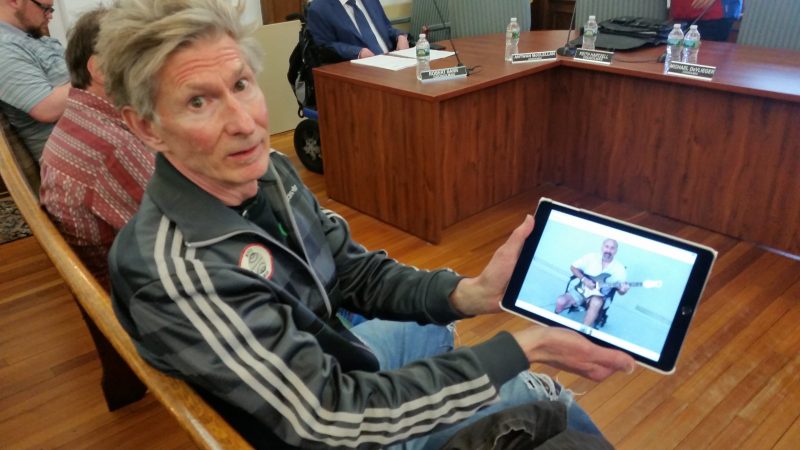
Leibrandt noted that he was especially concerned about a disabled friend who uses an amplifier to play electric guitar. He showed Council a picture of the guitar player on an electronic tablet. Leibrandt told the Council members there is a chance his friend will use his amplifier this summer as a way to challenge the new ordinance and possibly provoke a discrimination lawsuit.
Leibrandt, however, spoke before Council and the mayor agreed later on during the meeting that the city will accommodate the special needs of disabled performers.
One Boardwalk performer, Marie Sacks-Wilner, said entertainers sometimes need the aid of amplifiers so they can be heard above the background noise on the bustling promenade. She did not appear during Thursday night’s Council meeting, but spoke in an interview.
“I have mixed feelings about the ordinance. I can see why certain instruments are loud, but you have to compete with the roller coaster, the games, and the people on the Boardwalk,” Sacks-Wilner said. “The size of the crowd, especially in the summer, can make it hard to hear an instrument.”
Sacks-Wilner, of Somers Point, is a music teacher who plays the flute on the Boardwalk about three days a week. On a good day, she can earn about $100 in tips, she said.
The fact that she performs out in the open in a town where on any given night thousands of people could stroll by has been pretty good for business, she said.
“I’m picking up students for flute lessons and weddings,” she noted.
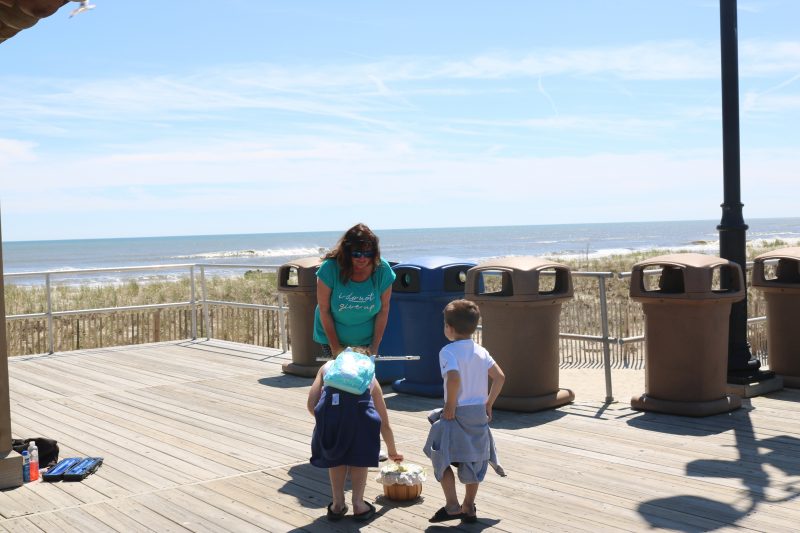
Sacks-Wilner acknowledged that city officials have been very good with her, and she just got her permit to play for her third summer on the Boardwalk.
“Some happy medium has to be reached,” she said of the regulations for Boardwalk performers. “The merchants and the musicians should work together. It helps both. People like to listen to music as they sit and eat.”
She spoke Wednesday, in between serenading passersby on the Boardwalk by 11th Street. At one point, a little boy walked over with his mother and dropped a bill into Sacks-Wilner’s decorative basket, which held coins and cash from people who enjoyed her music.
“Young children really love the flute,” she said. “You get children starting out taking lessons who really enjoy my playing.”


